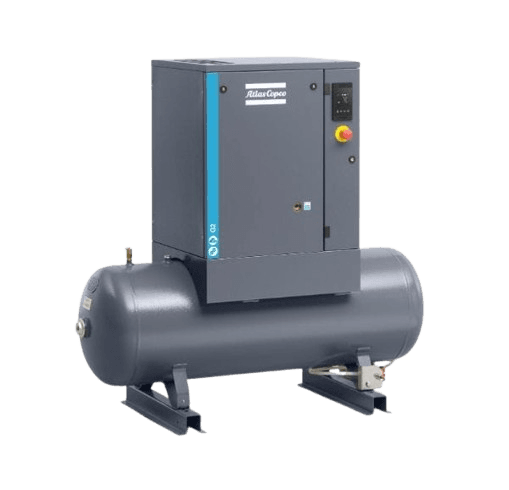Services
Air Compressors for the Transport Industry
Compressed air is the fourth utility for the UK transportation industry. When it falters, uptime, finish quality, and safety do too. We go over how to specify and run a compressed air system for depots, workshops, and on-vehicle use, cutting energy costs, protecting paint quality and meeting UK regulations.
Compressed Air Applications Across the Transport Sector
Depot Operations across bus garages, HGV workshops, rail maintenance depots, and logistics centres all rely on a clean, dry supply of compressed air.
- Workshop & Depot Maintenance: Driving heavy-duty, high-torque pneumatic tools, impact wrenches, vehicle lifts & jacks, air cleaning guns.
- Body & Paint Shops: Supplying high-purity, zero-contaminant air for surface preparation, paint spraying & clearcoat application.
- Rail Operations: Operating doors, brake-testing, sand box-filling, bogie overhauls in maintenance depots.
- Tyre & Wheel Services: Tyre inflation, bead-seating, tooling for wheel refurbishment.
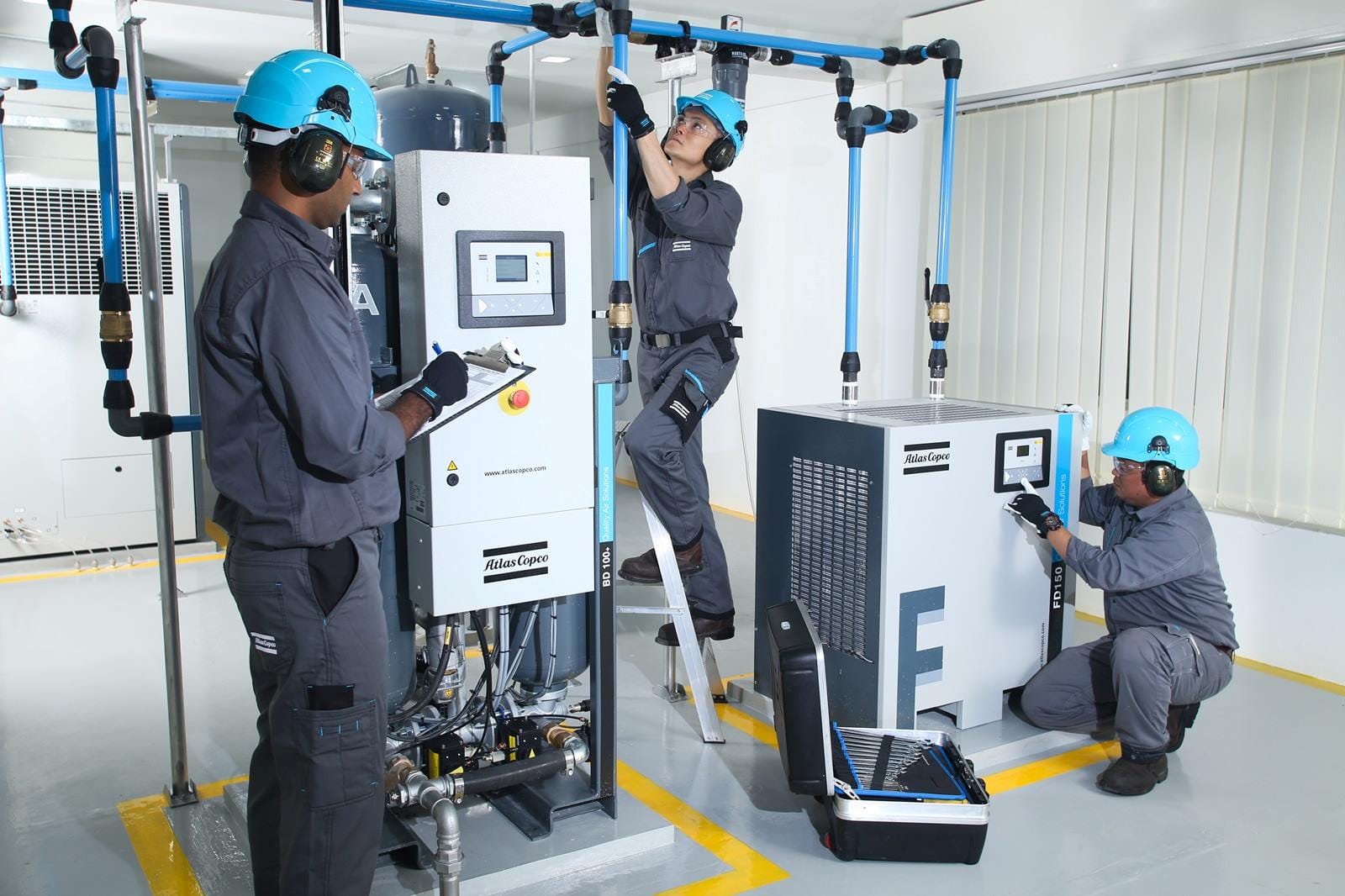

Tailored Compressor Solutions for Your Fleet
If it works everywhere, it will not work well anywhere. The solution is tailored to the individual requirements of each transport sub-sector.
Road Haulage & Logistics
For workshops with variable, high air demand, powerful, oil-injected rotary screw compressors are used to supply multiple tools simultaneously without a pressure drop. In 24/7 automated logistics centres, the emphasis is on reliable service, so Atlas Copco ZT/ZRoil-free compressors are often specified to avoid contaminating goods.
Public Transport & Bus Operations
Depot maintenance in the public transportation/bus industry requires systems for servicing and high-purity air for paint shops. For on-board use in electric and hybrid buses, specialised units like the Atlas Copco SF oil-free scroll compressor must be lightweight, quiet, and energy-efficient to maximise vehicle range.
The Rail Industry
Rail depots are harsh environments requiring extremely durable equipment. On-train compressed air is safety-critical for operating brakes and pantographs. These systems, such as the Atlas Copco GAR or LFpR/LFxR, must resist constant vibration and extreme temperatures.
Illustrative System Profiles
- Small Fleet Workshop: An 11–22 kW Atlas Copco GA VSD with an integrated dryer, a 500–1,000 litre receiver, and an aluminium ring main (e.g., AIRnet).
- Bus/Coach Depot: A 22–55 kW Atlas Copco GA VSD+ compressor, external refrigerated dryer, and a 1,000–3,000 litre receiver. Consider dual networks: higher pressure for lifts, standard 7 bar for tools.
- Body & Paint Centre: For high-spec finishes, use an oil-free supply (Atlas Copco ZT/ZR) for paint air. Includes activated carbon filtration for oil vapour; specify Class 0 with oil-free compressors and use EN 12021 breathing-air treatment where required.
- Rail Maintenance Facility: 75–132 kW Atlas Copco ZT/ZR oil-free + desiccant dryer (−40 °C PDP), Optimiser 4.0 sequencing, N+1 redundancy, distributed receivers, and a breathing-air module for paint bays.
Consult our Air Compressor Sizing Guide to ensure your equipment is correctly matched to your needs.
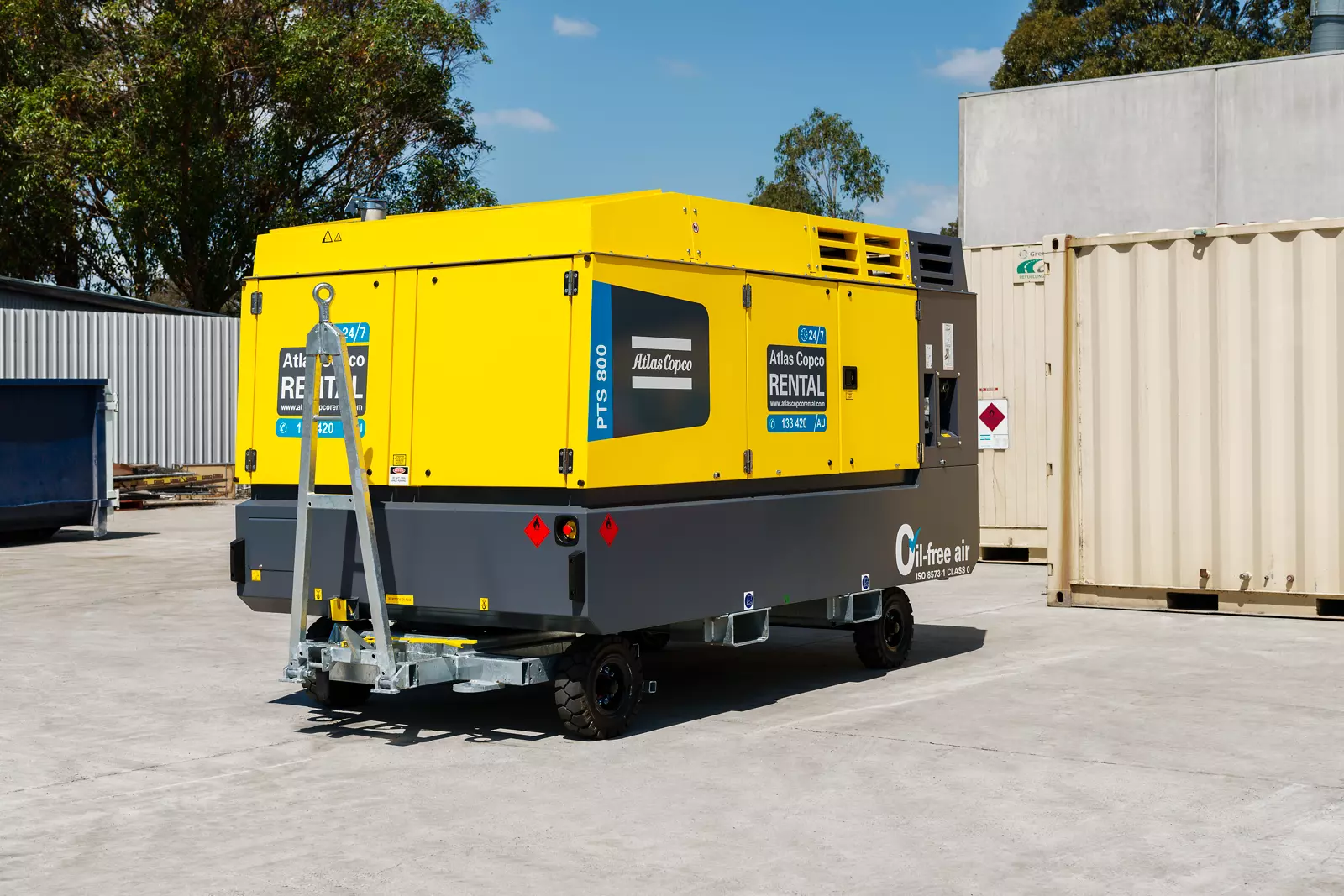

Identifying & Solving Common Problems
- Symptom: Paint defects like ‘fish-eyes’ or blushing.
- Cause: Oil or moisture contamination. Solved with oil-free compressors or correctly specified filtration and dryers.
- Symptom: Pneumatic tools stalling or underperforming at the end of the line.
- Cause: Pressure drop. Solved with a correctly sized aluminium ring main (e.g., AIRnet) with header velocity under 6–7 m/s, or local air receivers.
- Symptom: Winter freeze-ups on outdoor pneumatic lines.
- Cause: Inadequate drying. Solved with a desiccant dryer to a −20°C/−40°C pressure dew point (PDP) and ensuring all drain traps are functional.
- Symptom: Odour in spray booths.
- Cause: Oil vapour. Solved by adding a QD activated carbon filter and verifying air quality at the point of use.
Cut Energy Bills & Lifecycle Costs
Legal Compliance: PSSR, EN 12021, F-Gas
- PSSR 2000: A Written Scheme of Examination is legally required for most pressure systems. Non-compliance risks HSE enforcement.
- EN 12021 Breathing Air: Quarterly tests are mandatory for systems supplying air to respiratory protective equipment (RPE).
- Condensate Disposal: Requires an oil-water separator and a discharge consent. Illegal disposal can result in fines of up to £20,000.
- F-Gas: Certified contractors must perform leak checks on refrigerant dryers exceeding certain CO₂ equivalent thresholds.
Ask our team for a compliance check.

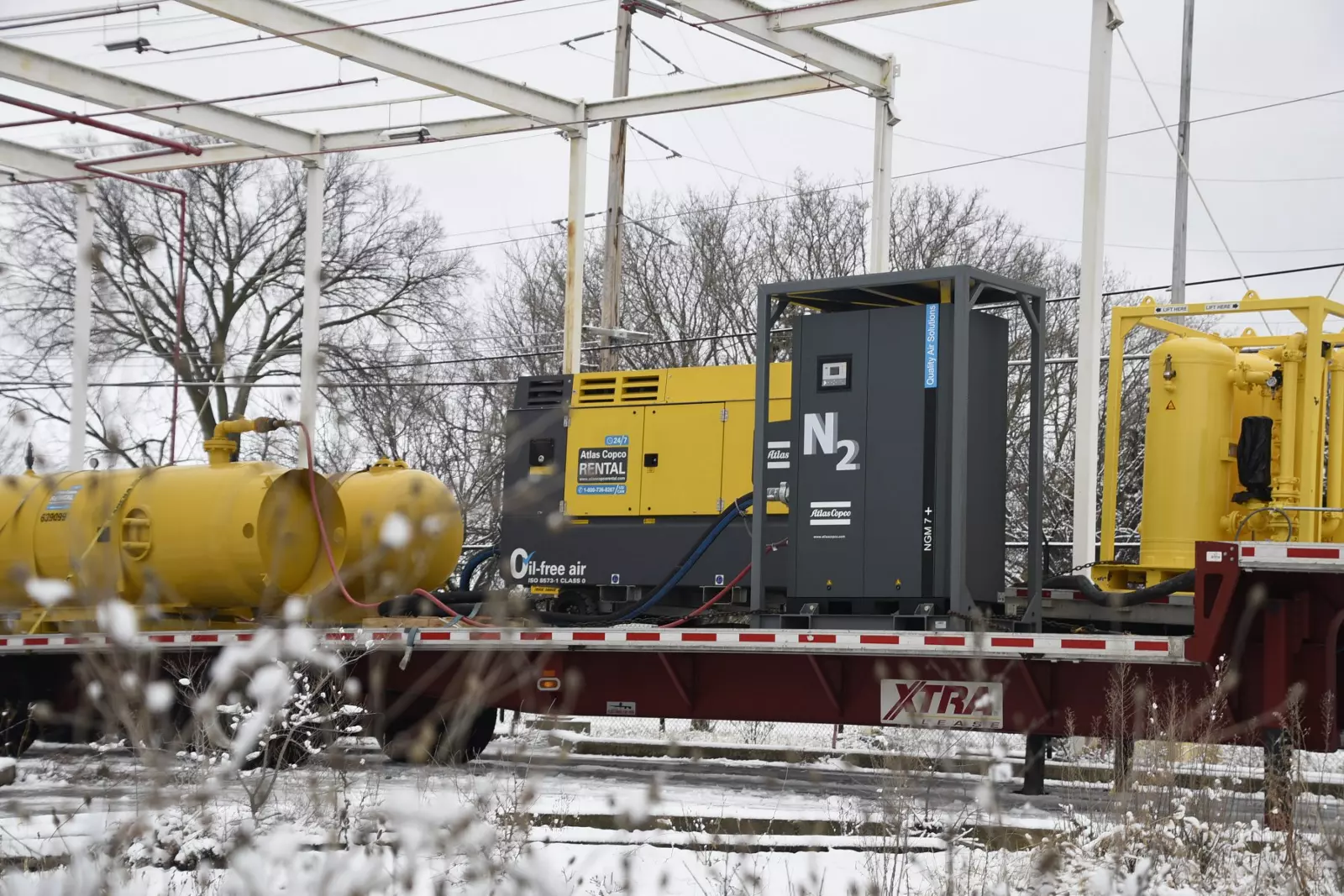
Future-Proofing Your Operations
Predictive failure and performance optimisation with data: Contemporary compressed air systems are managed in a way that provides information-based maintenance as well as early warnings about possible breakdowns with tools such as Atlas Copco’s SMARTLINK – a remote monitoring and communication platform that generates predictive maintenance alerts before a failure is imminent.
This is the first step in understanding the various types of air compressors and their applications for maximum efficiency.
Your Guarantee of Uptime and Performance
- 24/7 Emergency Response: From depots in Leeds, Sheffield, and Nottingham. Typical on-site attendance is 2–4 hours across Yorkshire and the East Midlands for Air Compressor Repairs, Maintenance, and Breakdowns.
- Proactive Maintenance: Tailored service contracts prevent failures and extend equipment life.
- Hire Fleet: Rental equipment ensures operational continuity during major repairs.
- Turnkey Installations: We manage the entire project from audit to commissioning.
A correctly specified compressed air system is a strategic asset. Book your free site audit today and let our engineers show you how to cut costs, ensure compliance, and keep your fleet moving.
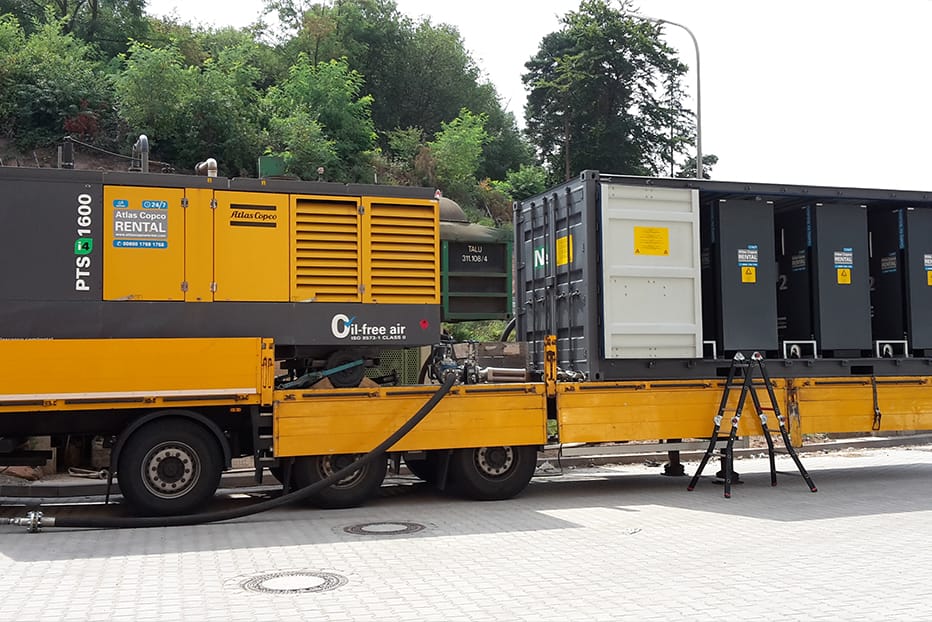
Want to know more about our transport service?
Contact us